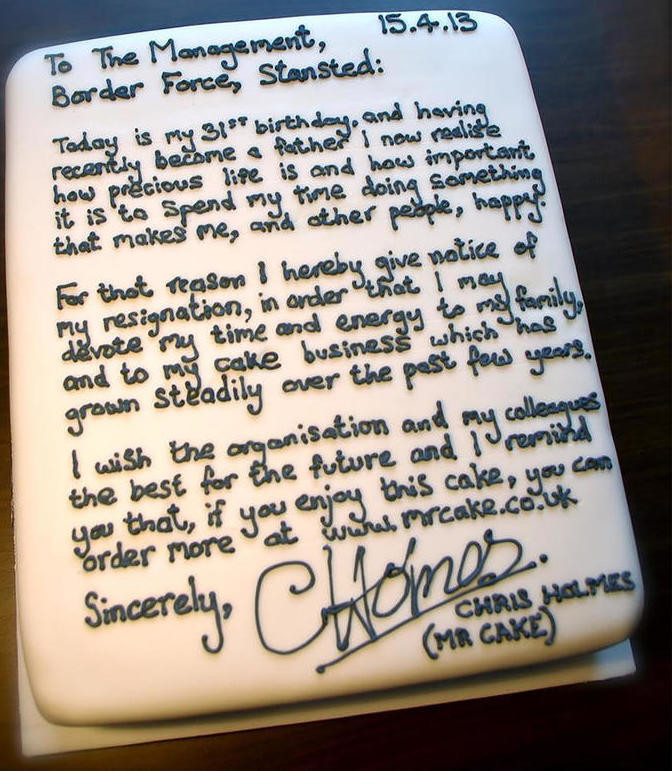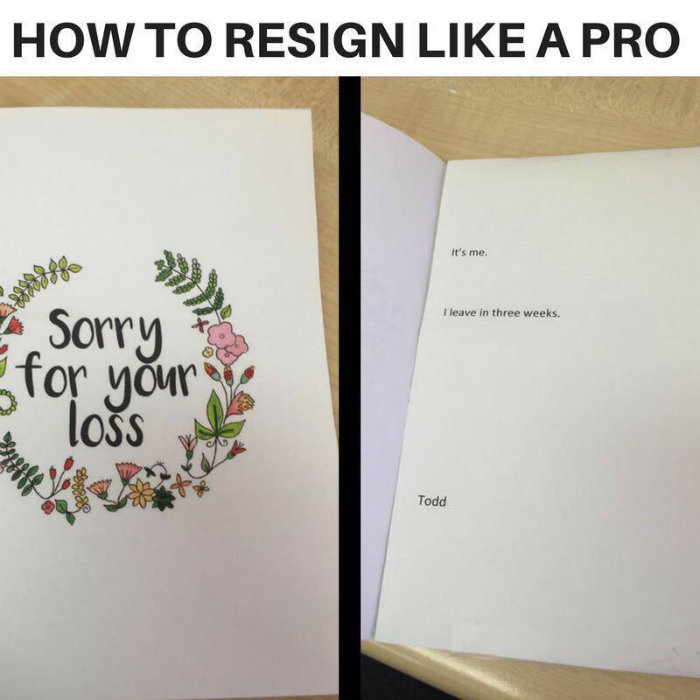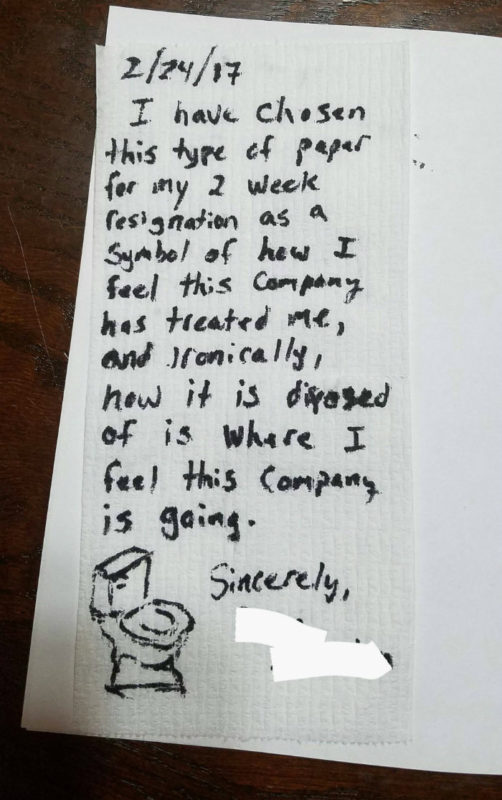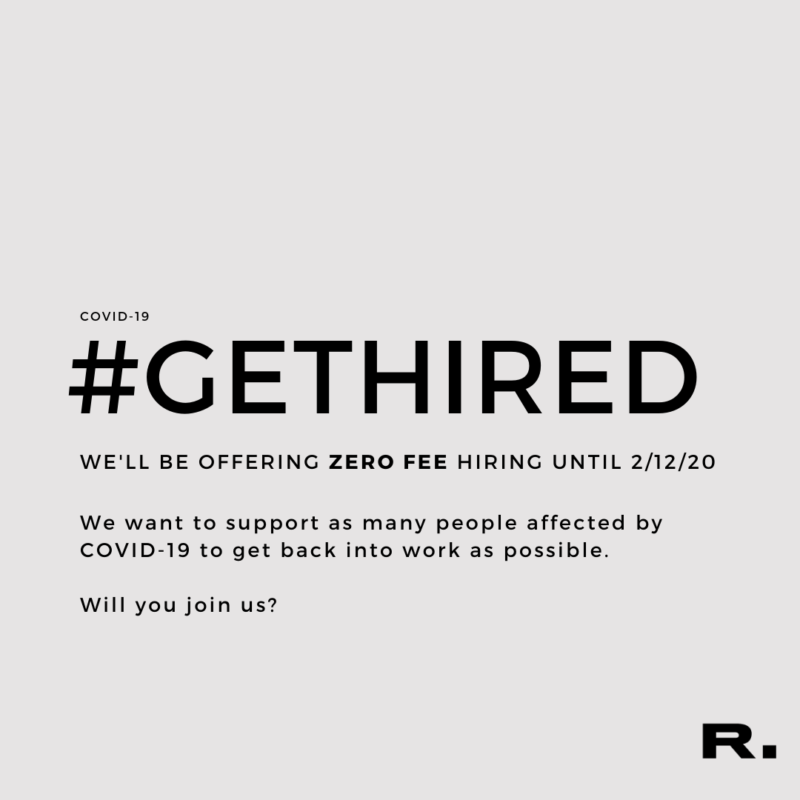You’ve done the hard work: mastered the interviews, completed your new company research, and have been offered the job. Now comes writing the resignation letter.
Don’t worry – you’re in safe hands here. As recruiting experts, we know exactly how to write an effective, clear letter of resignation so you can concentrate on the fun stuff – starting your new role!
What is a resignation letter?
Whenever you leave a job, you’re required to give a resignation letter to your employer. It formalizes your departure from your current employer and can be written as a printed letter or an email. It is not a confidential document and it may be shared in the organisation.
It’s short and to the point.
While this isn’t the first step of quitting your job (that would be having a face-to-face discussion with your boss to give your notice period – there’s seriously no need to create an “I quit” video), it’s an important one.
Standard resignation letter format
Here is the simplest way to layout your letter (it follows standard letter-writing practices):
- *Your address (top-right of the page)
- Date
- Recipient name (likely your line manager), recipient title, company name, company address
- Salutation (Dear [manager name])
- Confirmation of intent to resign
- Confirmation of notice period and the date of your last day of work. Plus any other formal requests
- Thanking your manager for the opportunity
- Confirming your contact information and a smooth transition as you work your notice period
- Closing
- *Signature
- Your name
*= only include these elements if you’re writing a printed letter. They do not need to be included in a resignation letter being sent by email.
Now let’s get into some examples.
Don’t do this
Let’s start here – while the below examples are hilarious…it’s not the professional, polite way of handing in your resignation.

(Mr Cake is still going strong. The tastiest resignation letter we’ve ever seen.)

(There’s short and sweet…and then there’s this. Sending our condolences.)

(This company got dumped real bad.)
Ultimately, it’s wise not to bring up any personal grievances in your resignation letter – even if they are your reason for leaving. You should discuss any further points in an exit interview.
Follow this example resignation letter template:
Sometimes it’s easier if you can just copy and paste and replace the missing details…so feel free to use the below template. (Shh, we won’t tell anyone).
[Today’s date]
[Manager’s full name]
[Manager’s job title]
[Company name]
[Company address]
Dear [Your manager’ name],
Please accept this letter as formal notification that I am resigning from my position as [job title] with [company name]. My last day will be [your last day—you can find your notice period in your job contract].
I want to thank you for the opportunities I’ve had here at [company name]. It has been a pleasure working with you and the rest of the team, and I’ve learned [a few specific skills you’ve learned on the job], all of which I will take with me in my career.
During my last two weeks, I’ll do everything possible to wrap up my duties. Please let me know if there’s anything else I can do during the transition. If you have any further questions, please do not hesitate to contact me. I am available phone [add your phone number] and email [add your email address].
I hope that I can rely on you for a positive reference in future.
Yours sincerely,
[Your name]
[Your current job title]
The above example is for sending an email. Add in your address in the top right, and your signature at the end if you’re handing in a printed letter.
Some more tips for your resignation letter
- Don’t share or send a letter until you are sure you want to leave
- Proofread your letter to ensure there are no spelling or grammar errors – Grammarly is a great, free tool for this
- Try not to put anything negative in writing about your manager, colleagues or subordinates. You don’t want to embarrass anyone – particularly the person who will be giving your future job reference
- Don’t disparage the company or its products and services. Avoid phrases like “I am moving to an innovative industry leader”
- It’s not the best idea to mention a better salary as the reason you are leaving. Instead, meet with your boss, discuss the situation, and use the offer as leverage to negotiate for more money. But be prepared if they won’t offer it
- Don’t be insincere. Everyone can read sarcasm. For example, if everyone knows you had difficulties working with your boss, don’t say something like “It will be difficult to leave such a capable and incredible team manager”
- The below doesn’t count, but gets points for creativity and artistic merit:

One final note
Obviously, feel free to adjust the template based on your experience and your company culture, then submit it via the typical procedures at your company.
And okay, yes, this may just end up sitting in the depths of HR until the end of time. But it has two key benefits:
- Your boss (who will be your future reference) will read it and be impressed.
- If you ever decide to come back to your company (it happens), it’s a very good thing that the last item on their files is a great, professionally written letter of resignation. And not like the below.
Happy quitting! Now just work through your notice period, attend an exit interview/fill in an exit interview feedback survey (if you feel like it – don’t forget, you can ask for an exit interview if you’re not offered one and you have specific feedback to give to the company), and get excited for your next job!
We’ve got some great tips if you’re starting your new job remotely and how you can make a great first impression.
Other Reads

Minute Read 08.12.20
Building a foundation for success in your new role
Found yourself out of work for the first time in a long time? We’ve launched the #GetHired Skills ...

2 Minute Read 08.12.20
Make a good impression starting a new job
They say ‘you never get a second chance to make a good first impression’. Well the good news is ...

1 Minute Read 03.11.20
#GetHired: A movement to get people affected by COVID-19 back into work
Introducing RecrutimentJunky’s #GetHired campaign – will you join us? We’re committing to ...